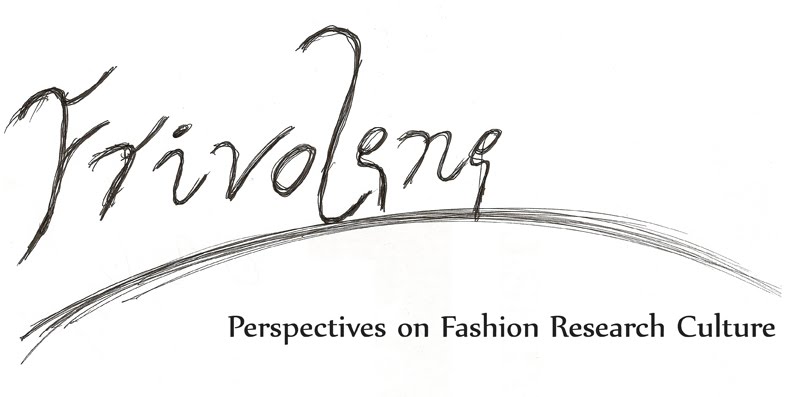
Dinarzade or Lillian Farley photographed by Edward Steichen, 1924
‘’As I went through the door to show my first dress, I had the impression of stepping into a perfumed, silk-lined jewel casket, the atmosphere was strongly charged. The men in their correct black tailcoats with the sleek, pomaded hair; the women in gorgeous evening dresses, plastered with jewels. It was hot, so hot, and the air was stifling with the mixed odours of perfume and cigarettes.’’
Lillian Farley in Chase, Edna Woolman and Chase, Ilka, 1954, Always in Vogue, London: Victor Gollancz Ltd. pp: 166
December's quote is a recollection by Lillian Farley, sometimes better known by her more exotic moniker ''Dinazarde'', recalling her first entrance as a mannequin in a fashion show at Jean Patou. Farley was one of the six celebrated mannequins brought from America to showcase the haute couture creations of Jean Patou. Although a lesser known name today than Chanel, Patou was a fashion marketeer par excellance, and knew what a great stir he would created in ''old Europe'' by showcasing his designs on a group of attractive yet ''modern'' American women. In turn, Farley's recollection here as recorded by Edna Woolman Chase (who worked for Vogue for an incredible 50 plus years rising to become its Editor-in-Chief, assisting in the ''birth'' of the British, French and German editions of the magazine along the way) reminds us of what an ''event'' a fashion show can be and the importance of the ''performance'' aspect that fashion can provide. Here in the depths of winter with heavy snowfall disrupting or preventing travel we can now revert to the comfort and convenience of the Internet via our laptops to obtain our ''fashion fix'', yet as Farley also reminds us, there is really no substitute for ''being there'', breathing in the atmospherics of the fashion, whether that be mannequin parade, or the spectacle of dressing up for a Christmas party. None of this can be substituted by the virtual experience. Farley's recollection is also an intriguing insight into the apparently more ''civilised'' experience of the early fashion shows, where the audience, men included, ''dressed-up'' for the occasion (no scruffy photographers scrabbling around in jeans and trainers) and where the heady atmosphere of excited anticipation for the new collections was heightened by the mixed aroma of perfume and cigarette smoke. Perhaps it was this kind of atmosphere Tom Ford had in mind to re-create when he presented his first own-label womenswear collection in September, where all but his ''official photographer'' Terry Richardson was banned, and the outfits paraded in the ''closed salon'' were worn by a mixture of high-profile characters, including Lauren Hutton, Beyoncé and Stella Tennant. Does this mark the return of the fashion show as an intimate ''insider'' event, where you have to be ''in-the-know'' to attend? As with Patou, Ford too is consummate marketeer, and so it will be interesting to see if others take to offering the ''first bite'' of their new collections to only select group of fashion insiders. Although judging by some of the outfits worn by the audience in recent pictures released from this show, it would appear the audience too will need to dress accordingly to rise to such occasions.

